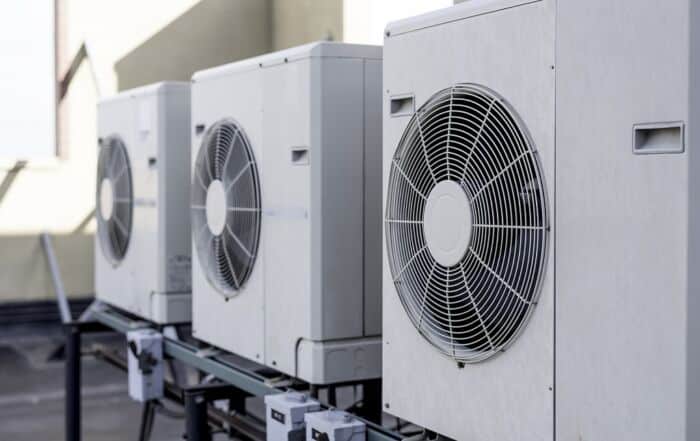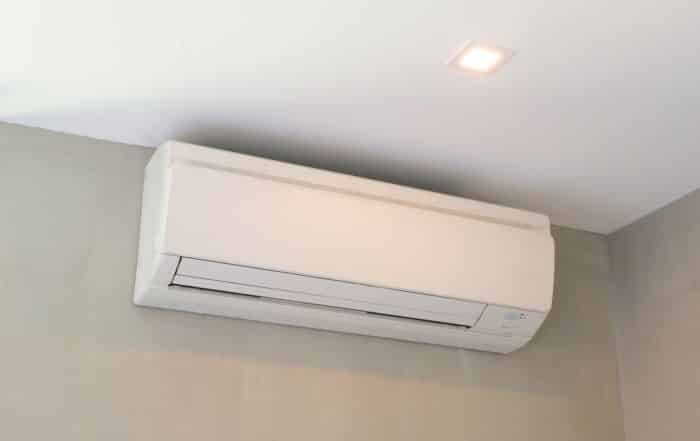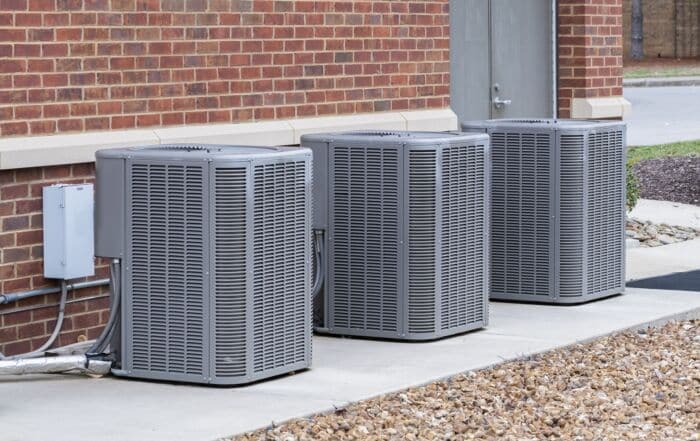When it comes to keeping your home cool, the air conditioning system you choose can have a significant impact on comfort, energy efficiency, and even the resale value of your property.
With various options available, homeowners need to understand the different types of air conditioning systems and their respective benefits and drawbacks. From traditional central air systems to the modern convenience of ductless mini-splits and simple window units, the right choice is the one that closely aligns with your home's layout, climate, and personal preferences.
In this blog post, we will compare these commonly used air conditioning systems, ensuring you have the knowledge to make a well-informed decision.
Understanding Your Options
Central Air Conditioning
The most traditional form of central air conditioning system is meticulously engineered to lower the temperature of the entire home. This is achieved by circulating cool air through a comprehensive network of ducts installed throughout the house. This system ensures an even distribution of cooled air, providing a consistent and comfortable environment in all living spaces.
Ductless Mini-Split Systems
Mini-split systems, which are perfect for homes without existing ductwork, operate using a heat pump mechanism to offer both heating and cooling solutions throughout the year. These systems are composed of two main parts: an outdoor compressor/condenser unit that functions as the heart of the system and an indoor air-handling unit, which effectively distributes the conditioned air within the home. This configuration not only allows for a versatile climate control solution but also offers a more energy-efficient alternative to traditional HVAC systems, making them an attractive option for homeowners looking to upgrade their heating and cooling capabilities.
Window Air Conditioning Units
A cost-effective and space-efficient cooling solution, these air conditioning units are designed to be mounted directly onto the window of the room you wish to cool. They offer a practical alternative to traditional air conditioning systems, especially for those with limited space. Not to mention, the installation process is relatively straightforward, making it an accessible option for homeowners looking to enhance their living environment with improved air quality and temperature control.
In-Depth System Comparison
Installation
Central air systems typically require professional installation and meticulous ductwork planning, representing a more complex setup. On the other hand, mini-splits also prefer professional installation but offer a more straightforward process, thanks to the absence of ductwork. Meanwhile, window units present an opportunity for DIY installation, though larger or higher-placed units might still necessitate professional assistance to ensure proper setup.
Cost and Efficiency
Central Air systems, while generally the most expensive option upfront, can be more energy-efficient for larger homes, making them a sound investment in the long run. Mini-Splits strike a balance with a mid-range initial cost and high efficiency, rendering them cost-effective over time. Conversely, Window Units present the most cost-effective solution upfront; however, they tend to be less efficient and incur higher operational costs for larger spaces, highlighting the importance of choosing the right system based on specific needs and spaces.
Suitability for Home Size and Climate
- Central Air: Perfect for larger homes and harsh climates.
- Mini-Splits: Versatile, suitable for small to medium homes and moderate climates.
- Window Units: Best for small spaces, apartments, and milder climates.
Evaluating the Pros and Cons
For this section, we will use bullet points to provide a quick and easy comparison between the three types of air conditioning systems discussed above.
Central Air
- Pros:
- Efficient cooling for the entire home.
- Adds value to the property.
- Cons:
- High upfront cost and potential for ductwork complications.
- Can be less efficient for smaller homes or when not zoned properly.
Ductless Mini-Splits:
- Pros:
- Zoned cooling for personalized comfort.
- Energy-efficient operation.
- Cons:
- Initial costs may be a barrier for some homeowners.
- Outdoor units may be visually intrusive for some.
Window Air Conditioning Units:
- Pros:
- Affordability and ease of installation.
- Portability if needed for multiple rooms.
- Cons:
- Limited capacity, not suitable for larger spaces.
- Can be less energy efficient and may not cool as evenly as other systems.
Upgrading Your Air Conditioning System
Signs you may need an upgrade
- Your current system is over ten years old.
- Energy bills are rising without increased usage.
- Rooms in your home are inconsistently cooled.
Upgrading to a more efficient system
- Central air systems with a high SEER (Seasonal Energy Efficiency Ratio) rating.
- Energy Star-certified ductless mini-splits.
- Replacing window units with newer models that offer improved efficiency.
Selecting an air conditioning system is a substantial decision that should take into account various factors, including cost, comfort, and longevity.
While central air conditioning is a longstanding choice for many homeowners, modern options like ductless mini-splits have introduced new standards in convenience and efficiency. Window units, though they have their limitations, cannot be underestimated in their value for specific cooling needs and spaces.
The key to making the right choice lies in understanding the needs and limitations of your home and the unique features of each system. Whether it's a full-home cooling solution or a room-specific unit, a well-chosen air conditioning system is your ticket to a comfortable home environment.
Get In Touch With Our Team Today
If you're a homeowner considering an air conditioning system purchase or upgrade, we encourage you to reach out to our team at [phone]. Our knowledgeable technicians can provide you with expert advice and help guide you toward the best system for your home.
Our team is here to help you make the most suitable and beneficial decision for your home's air conditioning needs.
Related Posts
Exploring Ductless Air Conditioning Systems for Small Spaces
If you’re a homeowner tired of sweating through sweltering summers, a ductless air conditioning [...]
Signs Your Air Conditioning Unit Needs Professional Maintenance
Imagine coming home on a sweltering summer day only to find that your air [...]
Common Misconceptions About Air Conditioning Usage and Costs
Air conditioning units are a staple in many homes, especially during the hot summer [...]


